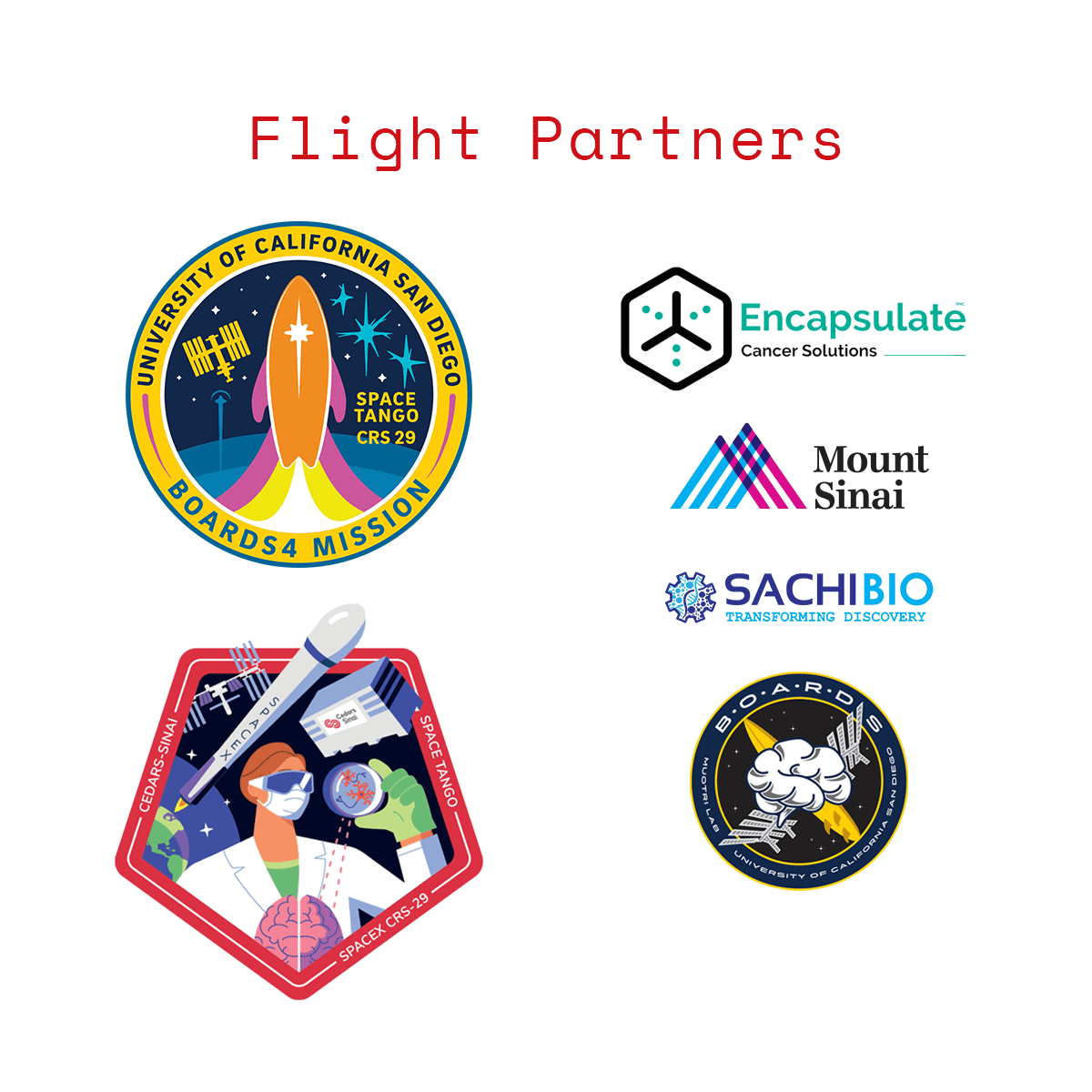
We use cookies to ensure that we give you the best experience on our website. If you continue to use this site we will assume that you are happy with it.
Ok ✕

The Effect of Microgravity on Human Brain Organoids (Space Tango-Human Brain Organoids) will study human brain organoids in space where the physical force of gravity is not present, allowing for a more detailed study of the survival, health, and genetics not possible on Earth. Organoids are small, three-dimensional stem cell-derived living masses of cells. Scientists use human organoids to model a specific organ’s biological functions as its cells interact with their environment and mature. Brain organoids may be used for a variety of studies including understanding the effects of disease, aging, and drug interactions in the brain. The results of Space Tango-Human Brain Organoids are expected to advance organoid technology, enabling a wide variety of new experiments using organoids in microgravity as a test platform for stress on the brain.
This investigation is also known as BOARDS – Brain Organoids Advanced Research and Development in Space – and is the third flight in a series of investigations for UCSD.
Why Microgravity?
The results of this study demonstrate how exposure to microgravity changes the survival, metabolism, and neuronal features of brain cells. In addition, understanding how the brain responds and adapts to the stresses of space including the absence of gravity is essential for any crewed space mission. This is fundamental to protecting human health for space exploration as it paves the way for future research on how the brain responds to spaceflight.
Study of Induced Pluripotent Stem Cells (iPSCs) in Microgravity (Production of Stem Cells for Personalized Medicine) examines the effect of microgravity on induced pluripotent stem cells (iPSCs) cells and the neural progenitor cells they generate. iPSCs may be created from any person of any age simply by taking a skin or blood sample, isolating cells, giving the cells specific factors, and driving them back to an embryonic state. iPSCs are immortal (can be grown forever) and have the capacity to create any tissue of the human body. iPSCs are ideal for creating and testing potential treatments that can be exactly tailored to the individual.
Why Microgravity?
Growing iPSC cells for use in treating humans is a complex process. On Earth, there are problems with the efficient growth and division of stem cells (proliferation) and then turning them into specific cell types of the human body such as beating heart cells and neurons in the brain (differentiation). Enhancing this process is beneficial to the human population if it results in improved stem cells.
If stem cells can be grown more effectively in microgravity and if the process can be scaled up for the biomanufacturing of key cellular products that can treat humans, this new capability will be important for people on Earth.
Microgravity has been shown to invoke changes in cell growth, differentiation, and communication. Studying the microgravity effect on gene expression, accelerated aging, and abnormal or advanced phenotypic maturation of cells and tissues is ongoing and holds promise. These genotypic and phenotypic changes may lead to improved disease modeling for people on Earth. Drug screening in these accelerated disease models in low-Earth Orbit (LEO) has the added advantage of discovering improved countermeasures for people on Earth, which may have huge economic and societal benefits.
This series of studies, led by Space Tango, with world-class partners addresses the following areas of research and development:
Why Microgravity?
Genotypic and phenotypic changes observed in microgravity may lead to improved disease modeling for people on Earth. Developing and validating accelerated disease models coupled with drug screening in LEO has the potential to discover improved countermeasures for people on Earth. The results of this investigation may lead to improvements in disease modeling and drug discovery in models otherwise difficult to study on Earth. These improvements could lead to more efficacious drugs on Earth.